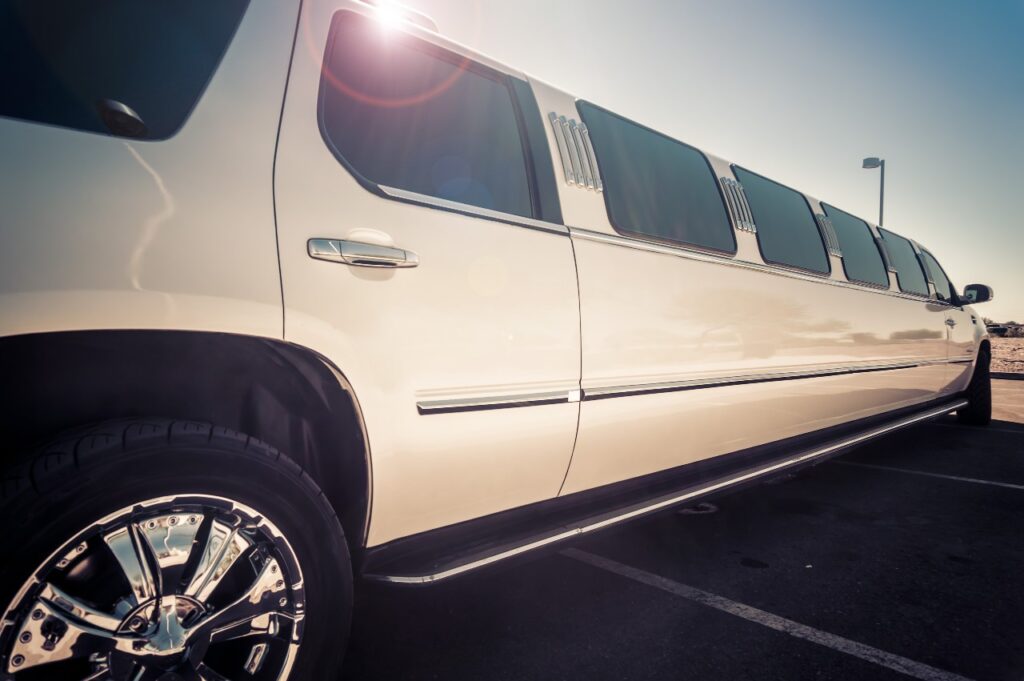Taxi and livery accidents: Who’s affected?

Were you or a loved one injured in a taxi or livery accident? Was anyone killed? You have the right to legal representation in seeking compensation.
Hail a cab or hop a shuttle? Hire a party bus? Book a limo for a special occasion? You are probably thinking about price and tips, presuming all else will be well. You don’t worry because these drivers are professionals, after all, the vehicles are inspected and dispatchers know where they are every second. Your presumptions may prove wrong, as you will find out if an accident occurs during your trip.
Drivers, however, are aware that they are among the most endangered workers in the country, and around the world, due to crashes and criminals. The State of Texas reports that 47 drivers-for-hire were killed in the U.S. in 2018, for reasons including contact with people under the influence, exchange of money, working alone in isolated areas, working at night in poorly lit areas and driving in high-crime areas. Yet the greatest danger to drivers and passengers is the same as for anyone in or near a motor vehicle: crashes. The event is over in seconds, but the legal work can go on for years.
Do you qualify?
If you or a loved one were in a taxi, limousine, private bus or other livery accident, you may qualify to participate in this FREE lawsuit investigation.
Please fill out the form on this page for more information.
Requirements
If you become involved in a livery accident you’ll need to know exactly what you are dealing with, and that may not be obvious. The rules, regulations and safety measures for taxis and other livery vehicles and drivers are generally designed and enforced by municipalities with state guidance. They change, and vary widely from place to place, as do the types of vehicle inspections and how consistently they must be performed. Only some require commercial drivers’ licenses. Only some require experienced drivers.
Some municipalities require a complete criminal background check, clean driving record, certified training as a taxi driver and the payment of a licensing fee. Others have drug checks and extra requirements. Drivers younger than 21 can work in some states, with varying degrees of experience on the road and knowledge of the streets. Some places take the age of the vehicle into account.
This kind of knowledge is particularly important to insurance companies and in states that assign blame to accidents.
Definitions
The word “livery” quite likely came from the old livery stables that boarded and rented out horses, buggies and carriages. Taxis are livery by the broad definition, but are generally distinguished from other forms of transportation including limousines and private buses, for which the term is now reserved. Things have become complicated now that rideshare services have jumped in as a sort of hybrid.
Generally, government, commission and insurance company definitions look like this:
Taxis
Also called taxicabs and cabs, taxis are cars, or small vans, usually with a maximum seating capacity of perhaps 7 passengers and a driver. They are hired for a trip to one destination and charged according to a meter visible to the passengers. The traditional yellow color was chosen by John D. Hertz, later of rental car fame, because they were easy see in a sea of black Fords.
New York City’s Taxi & Limousine Commission is perhaps the most thorough and active overseer of taxis and livery drivers in the country. To drive a cab in New York City you need a medallion, a system put in place to limit and regulate the number of taxis in a city that depends on them. NYC.gov reports there are 13,587 medallions.
Medallions are sold by brokers with approval from the city and are considered an investment by owners who drive the cabs themselves or rent out the medallions. Prices change from year to year, and the vast majority are financed by loans. It’s a matter of supply and demand, which has changed dramatically since Uber and Lyft drove the prices down and since the pandemic.
According to New York magazine, “Before the pandemic, some 10,500 yellow cabs — about 80% of the total number of taxi medallions issued by the city — were in the streets each day. During the peak of lockdown, in April 2020, that number was 982.”
The Guardian explains that when medallions were introduced in 1937, they were precious, particularly to immigrants, because they promised stability. A medallion could be sold or left to family members. By 2014, a medallion was worth a million dollars. Today, because rideshare companies have cut deeply into the taxi market, medallions are about $100,000.
(So many drivers are in debt for hundreds of thousands of dollars that there are calls to restructure the debt. Similar discussions are taking place in other cities that issue medallions, including Boston, Chicago, Philadelphia and San Francisco, where the taxi markets are also in crisis.)
Cabs without medallions also roam streets, particularly in neighborhoods medallion cabs avoid for reasons of safety. These renegades may be owner-owned or run by a car service. Depending on how they are licensed, they may be able to take pre-arranged trips, but many cruise the streets anyway. It’s a dangerous business for driver and passengers. In places where proper taxis are scarce, unlicensed and unregulated drivers in cars of unknown origin (known by the derogatory term “gypsy cabs”) cruise without such benefits to passengers as background checks, insurance or notification services that legal taxis use to signal police they are in trouble.
“The primary issue is public safety,” Account Commissioner Dillon Moran told Saratoga Today last year. “We don’t know who they are, and we don’t know where you could wind up. It is absolutely vital that you understand that you’re putting yourself at great risk.”
Shuttle and private buses
Shuttles are regularly scheduled services to specific locations, such as hotels and airports or from point-to-point at colleges and other spread-out institutions. The Federal Motor Carrier Safety Administration requires that shuttle drivers and others who transport passengers have a Commercial Driver’s License (CDL) issued by a state.
Limousines
Sometimes called limos or black cars, limousines vary by model, size (so-called stretch limos are configured into exaggerated lengths) and price points, but generally are driven by a licensed chauffeur separated from passengers by a partition. The vehicles are usually extremely comfortable, well-appointed and luxurious. Trips are arranged and the price negotiated in advance, and frequently involve round trips with “wait time” charges.
Limo drivers are generally required to have a chauffeur’s license, proof of a driver’s high level of knowledge, experience, skills and physical abilities. Serious traffic violations committed by registered chauffeurs can affect their ability to maintain their certification.
Lyft, Uber and other rideshares
This is where things get a little murky, because rideshare companies offer a kind of hybrid service. They are like taxis in that you can hail them with a website, and like limousines in that you pre-arrange the ride and the cost. The solution for insurance companies and the law is a separate category. They are not considered taxi or livery.
Accidents
Because taxi and livery transportation is primarily regulated by municipalities, the total number of crashes and injuries are not calculated at the national level. New York City police keep monthly statistics. For example, NYC taxis were involved in 342 accidents in October 2023 alone. Like all accidents, they ranged from fender-benders to more serious crashes involving pedestrians, other vehicles and unsafe road and traffic conditions.
Heartbreak knows no bounds when the crash is fatal and occurs during celebratory moments. Some become national news and cautionary tales:
- A white stretch limousine crashed on the way to birthday party. 18 passengers (including the driver) and two pedestrians were killed.
- A bride, groom and best man were killed as the result of their limousine being hit by a car on the way to the wedding reception.
- A 7-year-old named Katie served as a flower girl on what she described to her father as the best day of her life. The same day she was decapitated when a drunken wrong-way driver crashed into the limousine she was riding in with her family.
Recently the Department of Motor Vehicles suspended the testing permit it had granted to the Cruise driverless taxi operation after a car struck a pedestrian, shoving her into the path of the taxi and causing her traumatic injuries.
Insurance
Big companies and legitimate owner-drivers are typically insured, but the amount of coverage they carry is a matter of varying requirements and, in some cases, personal judgment. Types of insurance vary as well, sometimes depending on whether you are riding in a state where insurance is classified as no-fault, and no blame is assigned for compensation purposes. Some states allow exceptions.
Other states assign blame, much as police do, so it matters who is at fault. It also matters if the vehicle is up to regulation and that drivers hold the licenses they require and follow traffic and other rules.
Because settlements and liability payments can run easily to $1 million or more, insurance companies duke it out to see who can make a case to pay less and courts may be required to weigh in, all of which can take a long time. Those who are injured without income, whose loved one is injured or deceased, or whose property is damaged may take a backseat to the process and to the quirks of the regulations involved.
How to stay safe
Your phone can be your best traveling companion and bodyguard. No matter where you are or what vehicle you are in, be sure your mobile phone is charged and in your hand. Call someone and let them know where you are going. Take a quick pic of the driver’s credentials mounted on the dashboard or windows.
You are not necessarily safer when taking a for-hire vehicle near home, but you probably have the advantages of knowing the roads, the neighborhoods, the best places to hail or hire a ride and whom to call in a hurry if anything bad happens.
There are things you should do whether near home of in an unfamiliar place:
- Use the curb side when getting in and getting out
- Sit in the back seat of a cab
- Use the safety belt
- Stay alert
- Have a friend accompany you in a for-hire ride if you are drunk
- Keep your valuables tucked away
- Don’t harass or otherwise distract the driver
- Don’t fill conversations with personal information
- NEVER share cabs with strangers, even if they were there before you
- Don’t stick your arm or hand out of the window
- Don’t disembark before the vehicle is stopped by a curb
Driving and riding is particularly risky in places with haphazard traffic patterns and ineffective rules cause chaos, and where travelers who are oblivious are obvious to criminals.
If you are in an accident
The most important thing to do after an accident or other incident is to document it as thoroughly as you are able, and most of that involves your phone. If possible:
- Call 911 or its equivalent.
- Take photos of the vehicles.
- Take photos of injuries.
- Get the names and other information from anyone else involved, including witnesses.
- Be sure to file a police report and make sure the report is as detailed as possible, even if the accident seems small and the police are in a hurry.
Please fill out the form on this page for more information.
Join a taxi or livery investigation
If you are involved in a taxi or livery accident or other incident, you may need assistance through the maze of laws and insurance regulations or if your claim is challenged. You may also want to check with a lawyer before you potentially sign away your rights to further compensation and future lawsuits.
Please fill out the form on this page to see if you qualify for a FREE case evaluation.
GET HELP – IT’S FREE
Join a taxi or livery investigation
If you qualify, an attorney will contact you to discuss the details of your potential case at no charge to you.
After you fill out the form, an attorney(s) or their agent(s) may contact you to discuss your legal rights.
ATTORNEY ADVERTISING
The choice of a lawyer is an important decision and should not be based solely on advertisements.
PAID ATTORNEY ADVERTISEMENT: THIS WEB PAGE IS AN ADVERTISEMENT AND THE PARTICIPATING ATTORNEY(S) ARE INCLUDED BECAUSE THEY PAY AN ADVERTISING FEE. Top Class Actions is not a law firm, lawyer referral service, or prepaid legal services plan. We do not endorse or recommend any third-party claims processing company, lawyer, or law firm who participates in the network. We do not make any representation, and have not made any judgment, as to the qualifications, expertise, or credentials of any participating lawyer or processing group. No representation is made that the quality of the legal services or claims processing to be performed is greater than the quality of legal services or claims processing performed by other lawyers or claims processing group. The information contained herein is not legal advice. Any information you submit to Top Class Actions does not create an attorney-client relationship and may not be protected by attorney-client privilege because Top Class Actions is not a law firm. Instead, your information will be forwarded to an attorney(s) or their agent(s) or a claims processing firm for the purpose of a confidential review and potential representation if you qualify. You will only be contacted by an attorney(s) or their agent(s) in response to your inquiry if your initial information appears to qualify you for representation. If you are not contacted by an attorney(s) or their agent(s) within one week, you should consult another firm since all legal claims are subject to filing deadlines. All photos on this website are stock art and do not depict clients.












